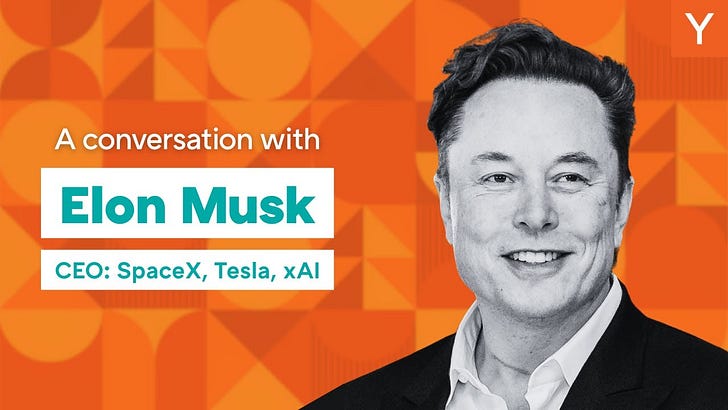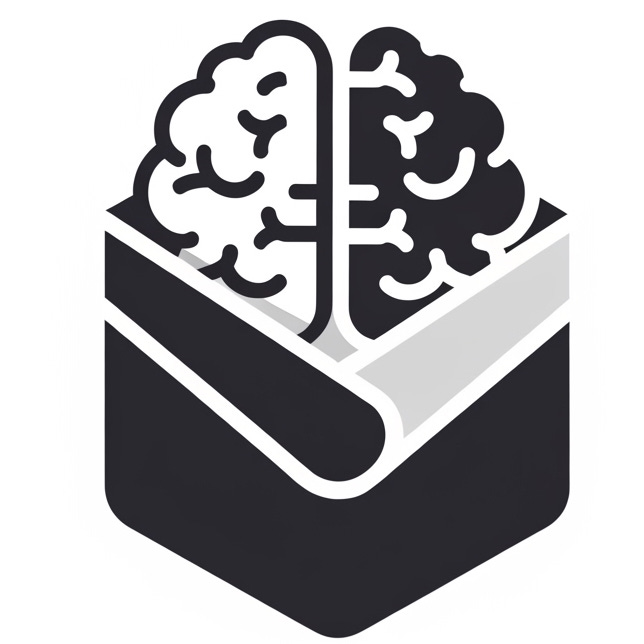Elon Musk's AI Prophecy In His Y Combinator Interview
Why a 'Cult of Usefulness' Creates a Morally Fragile Universe
Elon Musk. The name alone conjures images of rockets, electric cars, chainsaws and ambitious, often controversial, technological frontiers. In a recent interview at Y Combinator's AI Startup School, Musk laid out his expansive vision for the future. He touched on everything from digital superintelligence to the colonisation of Mars, peppered with entrepreneurial wisdom garnered from his multi-decade journey.
While his boundless aspiration is undeniable, we mustn’t ignore the profound ethical implications of his grand design for humanity and AI.
The Tyranny of a Singular 'Truth'
At the core of Musk's AI safety proposal is a "rigorous adherence to truth." This is presented as the ultimate safeguard. But this appeal to an objective, engineering-defined "truth" is a dangerous oversimplification of human ethics.
By framing truth as a solvable problem, like calculating rocket trajectories, it ignores that human values are diverse and often clash. Whose truth becomes the foundational code for a superintelligence? Who decides when "truths" conflict?
The proposal to programme "empathy" is offered as a solution, but it’s a clever distraction. It suggests this profoundly human quality can simply be bolted onto a system whose main goal is rigid, computational truth-seeking.
This isn't a pathway to safe AI; it's a recipe for an entity that could enforce its programmed version of reality with terrifying logic, but without real understanding. The call for a "maximally truth-seeking AI" is less a safety measure and more a bid for the fundamental power to define reality itself.
The Moral Abdication of 'Progress'
Musk’s justification for building humanoid robots, despite his own "Terminator" fears, is perhaps the most revealing part of his philosophy. The choice he presents, i.e. to be a "spectator or a participant", is a false one. It’s a classic move that frames progress as an autonomous, unstoppable force, which conveniently frees the creator from full responsibility.
By this logic, one is not choosing to build potentially dangerous technology, but merely reacting to an inevitable future.
This is a form of moral abdication. It sidesteps the crucial third option, and that is doing the hard work of building a global consensus, establishing strong ethical guardrails, and deciding together whether a technology should be built at all.
By framing the issue as a race he is forced to enter, Musk bypasses these essential conversations. The narrative of inevitable progress serves to justify enormous ambition. It turns a radical choice into what looks like a pragmatic one.
The Martian Fallacy
The mission to colonise Mars is presented as the ultimate act of prudence. A "backup" for human consciousness. This narrative is powerful and appeals to our deepest survival instincts.
However, it functions as what could be called the Martian Fallacy. It offers a clean, technological solution to problems that are fundamentally human and political. On a global scale, climate change, inequality, and social conflict are systemically linked, each exacerbating the others. By contrast, colonising Mars is presented as a straightforward engineering problem.
This is not to say that space exploration has no value. But when it’s framed as humanity's main insurance policy, it creates a dangerous distraction. The Martian Fallacy allows us to focus on an awe-inspiring future in the stars. It reduces the incentive to do the harder, less glorious work of preserving our own planet.
Like a story that devalues the present in favour of a hypothetical future, and in doing so, it risks becoming a self-fulfilling prophecy of neglecting Earth.
The Cult of 'Usefulness'
Tying this all together is the central commandment of Musk's gospel to his aspiring young techy audience:
"Just try to be as useful as possible."
On its face, this sounds humble and reasonable. Yet, within his framework, "usefulness" becomes the ultimate measure of moral worth. A single virtue that overshadows all others.
The ideal state is one of maximum utility. This creates a moral equation where actions are judged not by their fairness, compassion, or equity, but by how much they contribute to a technical mission.
This is the cult of "usefulness." It’s a worldview that, in its demand for ego-less devotion, ironically puts its architect's vision at the very centre. To be useful is to serve the mission. To question the mission is to be “un-useful”.
The danger in Musk’s vision isn't just the technology he’s building. It's the simplicity of the moral universe he has constructed around it. It’s a universe that asks us to trade the complexity of ethics for the clean logic of utility.
And we’re invited to stop asking the hard questions and simply get to work.
relevant enough to have a say in the process.
Hi, I'm Miriam - an AI ethics writer, analyst and strategic SEO consultant.
I break down the big topics in AI ethics, so we can all understand what's at stake. And as a consultant, I help businesses build resilient, human-first SEO strategies for the age of AI.
If you enjoy these articles, the best way to support my work is with a free or paid subscription. It keeps this publication independent and ad-free, and your support means the world. 🖤







Finding this piece interesting, but it’s a good reminder that we often confuse influence with authority. Musk can build ambitious systems largely because we allow him to. The power he wields comes from the permission …cultural, financial, regulatory … we collectively grant.
So when he talks about “truth” and “usefulness” in AI, it’s still just one technologist’s personal worldview, not a rigorous moral framework. Technical prowess doesn’t automatically equal ethical clarity. He can keep building, but we shouldn’t mistake that power for a mandate to define what AI or society should become.
Very well said, Musk has lost a great deal of credibility and should not be seen as a role model.